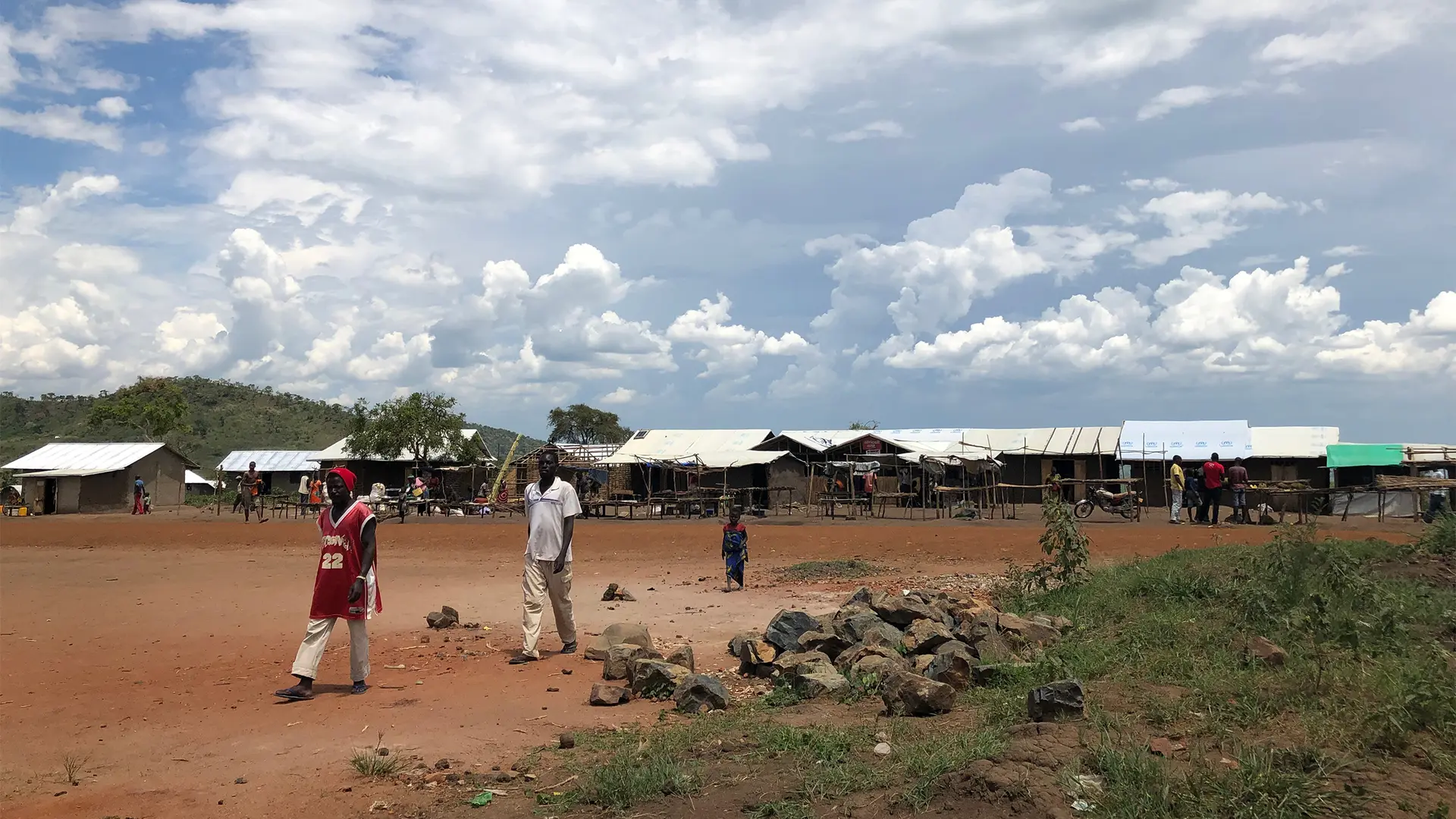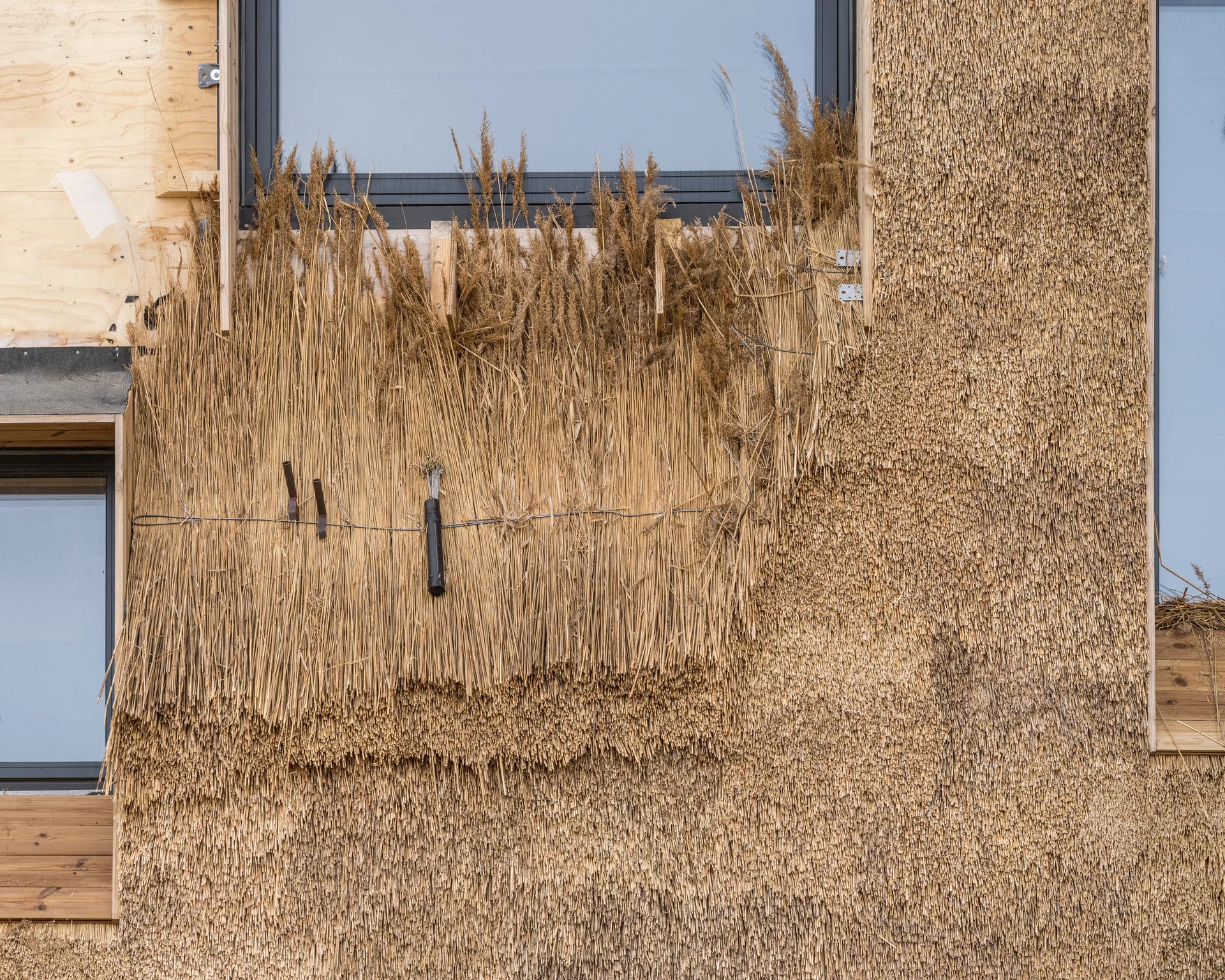In Uganda, personal insights help shape a better future for refugees

Henning Larsen joins CARE Denmark and Danish innovators to develop CAMP+, a scalable concept for a more sustainable, self-sufficient refugee settlement.
In 2002, the Kyangwali Refugee Settlement in western Uganda was home to some 7,000 residents. Today, the settlement’s population has surged to nearly 100,000.
Under a constant influx of arrivals fleeing crises in neighboring states, it is one of the largest and fastest-growing refugee settlements on the continent.
As the growing population strains the limited territory and resources of the 92 km2 settlement, Kyangwali presents a pressing question: How can we create refugee settlements that provide the most livable, dignified, self-directed and sustainable conditions for their residents? What does empowering, enduring aid look like, and how do we shape it to the context of those in need? Henning Larsen, in conjunction with CARE Denmark, is working to find answers.
Through CARE Denmark, a humanitarian NGO, Henning Larsen joins a select team of sustainability-focused Danish firms and institutions to contribute to the CAMP+ initiative, which aims to build an adaptable concept for a sustainable, self-sufficient refugee camp. CAMP+ draws from Danish innovators in agriculture, architecture, energy, and technology, including partners such as Aarstiderne, SLA and the Technical University of Denmark. Henning Larsen brings an architectural perspective to the initiative, exploring how smart design in the built environment can improve the quality of life. As part of the development phase of CAMP+, Henning Larsen’s Anne Grave and Troels Dam Madsen traveled to Uganda last month to gather personal perspectives on life in Kyangwali.
“We started thinking we would do the typical thing, designing a kit for building a better house or something. But when you get down there, you realize that they’re already doing this, creating functional homes using natural materials and traditional methods. We talked to one carpenter who said it took him just two weeks to build a house, using almost no tools,” Madsen said.
“Coming to a community that was building homes in the same way they have for thousands of years and trying to teach them something new just felt wrong.”
Over the course of one week, Grave and Madsen conducted interviews with Kyangwali residents, visited developing homesteads and studied the settlement’s planning strategy, developing a locally-rooted perspective toward potential improvements. These personal insights pointed to a more conceptual strategy – Focusing on community-based improvements that would magnify the capability already present in Kyangwali. For the Henning Larsen team, this means giving ownership to the residents, building a framework to be developed through their own insight and ability.
“There are all these knowledgeable, capable people, but right now they don’t have a common forum in which they can share their skills with one another. So we’re looking at creating a community hub structure, trying to translate the Danish ‘forsamlingshus’ concept,” Grave says.
“We want to create a space where their combined power takes on greater meaning.”
As the CAMP+ initiative aims to construct a small-scale concept camp in Kyangwali by the end of the year, Henning Larsen is helping to shift the vision to favor personal perspectives – Concepts, not constructions – that will help make CAMP+ scalable and adaptable to different contexts and cultures. Here, innovation begins from the bottom up, allowing locals to shape design, and design to shape a better future.
“We’re quite aware that we can’t come to this settlement and say, ‘Here’s a solution, please implement this,’ and expect the quality of life to instantly jump,” Grave says.
“We’re focusing much more on ownership, on creating engaged community leaders who can spread that to their wider circles.”



